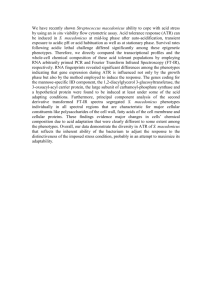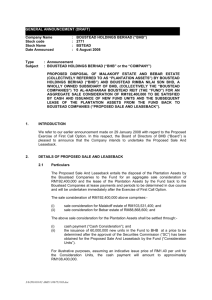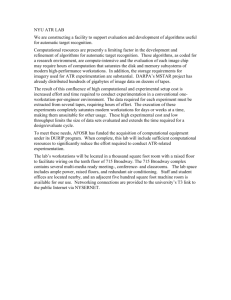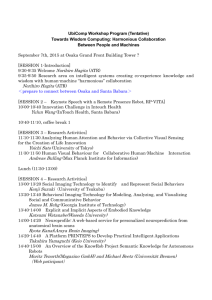The words “ground-breaking case” to assess, collect and pay out sums
advertisement
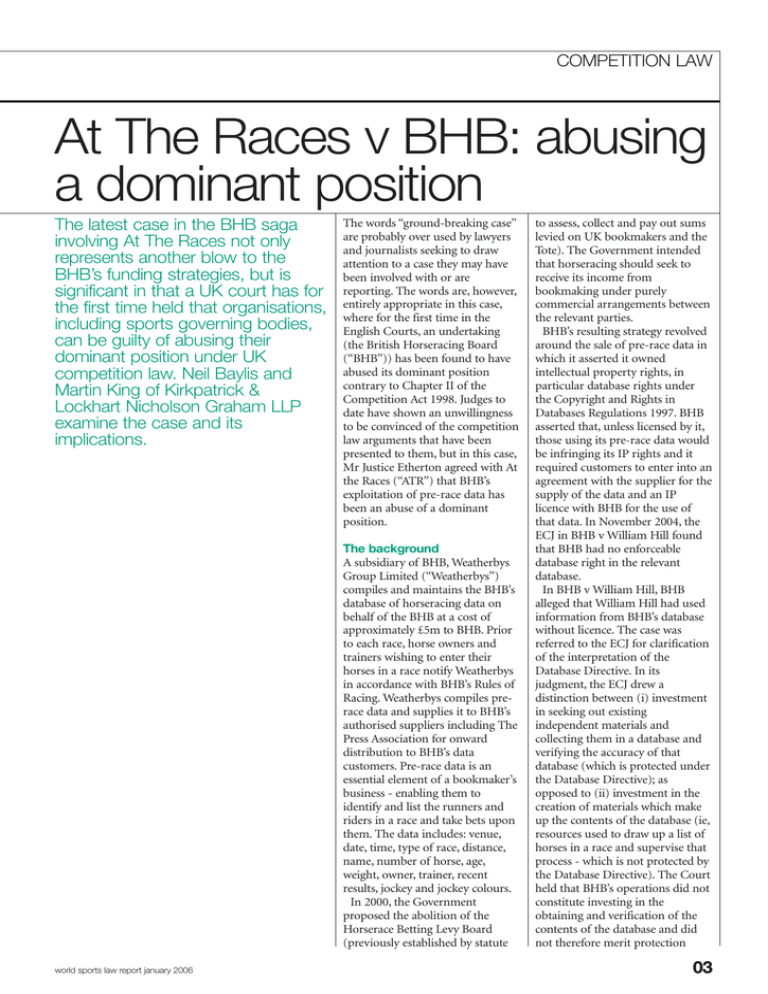
COMPETITION LAW At The Races v BHB: abusing a dominant position The latest case in the BHB saga involving At The Races not only represents another blow to the BHB’s funding strategies, but is significant in that a UK court has for the first time held that organisations, including sports governing bodies, can be guilty of abusing their dominant position under UK competition law. Neil Baylis and Martin King of Kirkpatrick & Lockhart Nicholson Graham LLP examine the case and its implications. The words “ground-breaking case” are probably over used by lawyers and journalists seeking to draw attention to a case they may have been involved with or are reporting. The words are, however, entirely appropriate in this case, where for the first time in the English Courts, an undertaking (the British Horseracing Board (“BHB”)) has been found to have abused its dominant position contrary to Chapter II of the Competition Act 1998. Judges to date have shown an unwillingness to be convinced of the competition law arguments that have been presented to them, but in this case, Mr Justice Etherton agreed with At the Races (“ATR”) that BHB’s exploitation of pre-race data has been an abuse of a dominant position. The background A subsidiary of BHB, Weatherbys Group Limited (“Weatherbys”) compiles and maintains the BHB’s database of horseracing data on behalf of the BHB at a cost of approximately £5m to BHB. Prior to each race, horse owners and trainers wishing to enter their horses in a race notify Weatherbys in accordance with BHB’s Rules of Racing. Weatherbys compiles prerace data and supplies it to BHB’s authorised suppliers including The Press Association for onward distribution to BHB’s data customers. Pre-race data is an essential element of a bookmaker’s business - enabling them to identify and list the runners and riders in a race and take bets upon them. The data includes: venue, date, time, type of race, distance, name, number of horse, age, weight, owner, trainer, recent results, jockey and jockey colours. In 2000, the Government proposed the abolition of the Horserace Betting Levy Board (previously established by statute world sports law report january 2006 to assess, collect and pay out sums levied on UK bookmakers and the Tote). The Government intended that horseracing should seek to receive its income from bookmaking under purely commercial arrangements between the relevant parties. BHB’s resulting strategy revolved around the sale of pre-race data in which it asserted it owned intellectual property rights, in particular database rights under the Copyright and Rights in Databases Regulations 1997. BHB asserted that, unless licensed by it, those using its pre-race data would be infringing its IP rights and it required customers to enter into an agreement with the supplier for the supply of the data and an IP licence with BHB for the use of that data. In November 2004, the ECJ in BHB v William Hill found that BHB had no enforceable database right in the relevant database. In BHB v William Hill, BHB alleged that William Hill had used information from BHB’s database without licence. The case was referred to the ECJ for clarification of the interpretation of the Database Directive. In its judgment, the ECJ drew a distinction between (i) investment in seeking out existing independent materials and collecting them in a database and verifying the accuracy of that database (which is protected under the Database Directive); as opposed to (ii) investment in the creation of materials which make up the contents of the database (ie, resources used to draw up a list of horses in a race and supervise that process - which is not protected by the Database Directive). The Court held that BHB’s operations did not constitute investing in the obtaining and verification of the contents of the database and did not therefore merit protection 03 COMPETITION LAW under the Database Directive. The judgment led a number of pre-race data customers, in particular bookmakers, to question the BHB’s entitlement to, and/or level of, licensing fees over and above the fees being paid to The Press Association for supply of the data. The first such bookmaker to bring the issue to Court was Victor Chandler (“VCI”) who, in March 2005, sought an injunction against BHB and The Press Association. VCI had refused to pay licence fees alleging an abuse of a dominant position, and also alleging that the parties had entered into the licence agreement on a fundamental mistake (i.e. on the basis that database rights subsisted in the database). The application failed on both counts. ATR’s own action against BHB for abuse of dominance was brought in April 2005. ATR supplies websites and other audio-visual media with materials relating to British horseracing. The commercial arrangements for ATR’s use of BHB’s data expired in 2004. Thereafter, ATR and BHB failed to agree on the terms under which BHB would continue to supply pre-race data to ATR for its provision in ATR’s overseas services. Following the ECJ’s ruling on the interpretation of the Database Directive, ATR questioned BHB’s right to impose terms on ATR for use of the prerace data. BHB gave ATR notice that unless it entered into a licence with BHB for the use of pre-race data, BHB would instruct its suppliers to withdraw the supply of BHB’s data to ATR. ATR simultaneously issued proceedings and an application for an interim injunction to restrain BHB from instructing The Press Association to terminate the supply of pre-race data to ATR. The interim application was heard at the same time that the Court of 04 Where there is a risk of dominance then review carefully the terms of your agreements to ensure you are not exploiting your customers Appeal heard the William Hill case. The Vice Chancellor hearing ATR’s application waited for the Court of Appeal’s finding before delivering his judgment. ATR’s application was successful and the Court accepted undertakings from BHB to the same effect as the relief sought by ATR on the basis that ATR undertook to pay BHB’s licence fees pending trial. At the heart of ATR’s High Court proceedings, were allegations of excessive, unfair and discriminatory pricing by BHB. The Law Chapter II of the Competition Act 1998 prohibits the abuse of a dominant position. The provisions are based closely on Article 82 of the EC Treaty, but without the need for there to be an effect on trade between Member States. Abusive behaviour is unlawful, and fines of up to 10 per cent of worldwide turnover may be levied by the Office of Fair Trading where an infringement is found. Furthermore, Chapter II is directly enforceable in the Courts, where a person can show they have suffered economic loss as a result of the abusive conduct, injunctive or monetary remedies may be sought. There are two elements to bringing a successful claim for breach of the Chapter II prohibition. First, is the need to show a dominant position and secondly, the need to show that position has been abused. Dominance Dominance means a position of economic strength on a given market enabling the undertaking concerned to act without regard to competitive pressures from customers or competitors. In determining whether a party is dominant, the key issue is therefore the definition of the relevant market. If defined widely then market shares tend to fall and so does the purported economic strength that is associated with a high market share. In this case, the Court found that the market was for the supply of UK pre-race data, in all countries outside the UK and Ireland. On this market, BHB was effectively the only supplier and clearly enjoyed a dominant position. Abuse There is no definitive list of “abuses” that may be considered unlawful under Chapter II of the Competition Act. In the present case, ATR highlighted a number of aspects of the BHB’s conduct which it argued should be regarded as abusive. Refusal to supply - a dominant undertaking which owns an “essential facility”, being a product or service which is essential for a third party to carry on its business, was obliged to make that facility available on reasonable terms. Applying unreasonable terms was equivalent to a straightforward refusal to supply. In this case, BHB’s terms were so unreasonable (largely as a result of the prices being charged) as to constitute an unlawful refusal to supply. Excessive pricing - pricing which constituted exploitation of customers or which distorted competition would be regarded as excessive. Although the Court acknowledged BHB did have a right to charge for the data (notwithstanding the absence of any IP rights in that Data), it found that in this case the prices were “plainly excessive” and far in excess of the cost of production or what could be regarded as a reasonable return on investment. Discriminatory pricing - the Court agreed that BHB’s charges to ATR for its overseas services were discriminatory vis-à-vis the charges that BHB was proposing to world sports law report january 2006 COMPETITION LAW charge ATR’s competitors. A dominant company must treat like customers equally unless there are objective reasons for unequal treatment - no such reasons existed here. Significance of the case Other than its interest to competition lawyers and all lawyers involved in sports and media issues, the case is obviously profoundly significant to the BHB which, unless it is able successfully to appeal the judgment, will need to re-assess its funding strategies. In principle its customers will be able to seek damages for the sums they have paid in the past under arrangements which are now deemed to be abusive. Whether such claims would really be in the commercial interests of those customers is another matter. It is worth noting that there is no reason why the judge would have reached a different conclusion even if BHB had owned database rights in its database. European case law shows that it is perfectly possible to enter into abusive licensing arrangements of IP rights. The lessons for other sports governing bodies and indeed any dominant entity seeking to exploit data are clear - assess your position in the market, and where there is a risk of dominance then review carefully the terms of your agreements to ensure you are not exploiting your customers. This case will encourage other customers of sporting data to consider if they too can bring a similar challenge. Neil Baylis Partner Martin King Assistant Kirkpatrick & Lockhart Nicholson Graham LLP nbaylis@klng.com mking@klng.com world sports law report january 2006 05
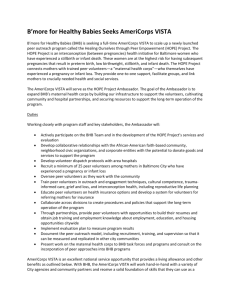
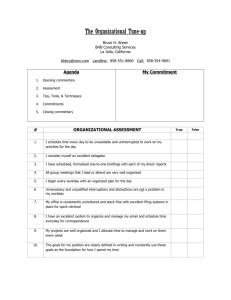
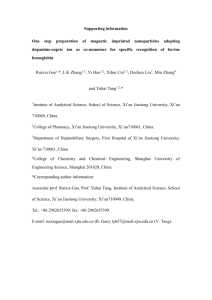
![Neutral Citation Number: [2005] EWCA (Civ) 863](http://s2.studylib.net/store/data/010889286_1-379f8201f38c50e7a5e21d9b23163f89-300x300.png)
